 Iron deficiency is the most widespread nutritional deficiency in the world.
Iron deficiency is the most widespread nutritional deficiency in the world.
Researchers form Boston and London reviewed the evidence. Continue reading Effect of prenatal iron on pregnancy outcomes
 Iron deficiency is the most widespread nutritional deficiency in the world.
Iron deficiency is the most widespread nutritional deficiency in the world.
Researchers form Boston and London reviewed the evidence. Continue reading Effect of prenatal iron on pregnancy outcomes
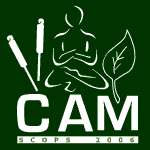 Complementary and alternative medicines (CAM) are frequently given to children and adolescents for reputed benefits for hyperkinetic and concentration disorders such as attention deficit hyperactivity disorder (ADHD).
Complementary and alternative medicines (CAM) are frequently given to children and adolescents for reputed benefits for hyperkinetic and concentration disorders such as attention deficit hyperactivity disorder (ADHD).
Researchers in Arizona and Australia assessed the evidence based on the results of studies providing an acceptable standard of evidence. Continue reading Review: CAM for ADHD
 Researchers at the University of Oslo, in Norway, studied the use of herbal supplements by pregnant Norwegian women. Continue reading Use of herbal supplements by pregnant women
Researchers at the University of Oslo, in Norway, studied the use of herbal supplements by pregnant Norwegian women. Continue reading Use of herbal supplements by pregnant women
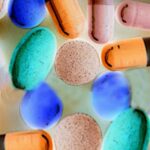 Dietary supplement use has steadily increased since the 1970s.
Dietary supplement use has steadily increased since the 1970s.
Researchers at the National Institutes of Health estimated dietary supplement use based on the National Health and Nutrition Examination Survey (NHANES) 2003–2006, a nationally representative survey. Continue reading Increasing popularity of dietary supplements
 Dietary supplements are commonly taken to prevent chronic disease.
Dietary supplements are commonly taken to prevent chronic disease.
Researchers in Finland, Norway, and the Republic of Korea studied the long-term health consequences. Continue reading Dietary supplements and the risk of death in older women
 Researchers from the University of Canterbury, at Christchurch, New Zealand reviewed the evidence supporting the use of nutritional and herbal supplements to treat attention-deficit/hyperactivity disorder (ADHD). Continue reading Treating ADHD with supplements
Researchers from the University of Canterbury, at Christchurch, New Zealand reviewed the evidence supporting the use of nutritional and herbal supplements to treat attention-deficit/hyperactivity disorder (ADHD). Continue reading Treating ADHD with supplements
 Dr. Cathi Dennehy from the Department of Clinical Pharmacy at the University of California San Francisco has reviewed the evidence.
Dr. Cathi Dennehy from the Department of Clinical Pharmacy at the University of California San Francisco has reviewed the evidence.
I was surprised by her assessment of black cohosh for menopausal symptoms.
Here’s a summary of her findings.
 A study from the University of Alberta concluded that the environmental impact of food-miles racked up by organic produce when making the trip from farm to grocery store cancels out the benefits of growing it according to organic principals. Continue reading Judging organic food based on miles to grocery store
A study from the University of Alberta concluded that the environmental impact of food-miles racked up by organic produce when making the trip from farm to grocery store cancels out the benefits of growing it according to organic principals. Continue reading Judging organic food based on miles to grocery store
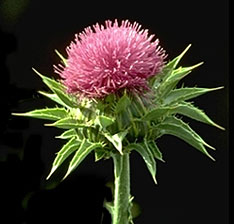 Milk thistle is used as an alternative therapy for liver disease.
Milk thistle is used as an alternative therapy for liver disease.
Researchers in Seattle, Washington examined the effect of silybin on iron status in patients with hepatitis C. Continue reading Milk thistle, iron, and hepatitis C
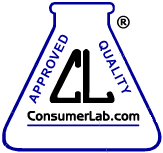 You’ll have to join to get more details, but here are the top line findings. Continue reading ConsumerLab tests iron supplements
You’ll have to join to get more details, but here are the top line findings. Continue reading ConsumerLab tests iron supplements
 The researchers say yes, particularly in the developing world where blood transfusions suffer from inadequate screening and fall short of the stringent safety standards followed in the developed countries. Continue reading Can homeopathy bring additional benefits to thalassemic patients?
The researchers say yes, particularly in the developing world where blood transfusions suffer from inadequate screening and fall short of the stringent safety standards followed in the developed countries. Continue reading Can homeopathy bring additional benefits to thalassemic patients?
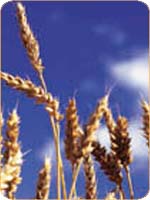 Researchers have cloned a gene from wild wheat that increases its protein, zinc, and iron content. The impact of this research could improve nutrition, worldwide.
Researchers have cloned a gene from wild wheat that increases its protein, zinc, and iron content. The impact of this research could improve nutrition, worldwide.
Continue reading Increased protein and mineral content from genetically engineered wheat
 The University of Arizona Cooperative Extension has an excellent review of calcium supplements. It is well written, thorough, and concise — just 4 pages long. The part I like best is the discussion of the difference between elemental and total calcium.
The University of Arizona Cooperative Extension has an excellent review of calcium supplements. It is well written, thorough, and concise — just 4 pages long. The part I like best is the discussion of the difference between elemental and total calcium.
Continue reading Recognize the difference between elemental and total calcium in supplements
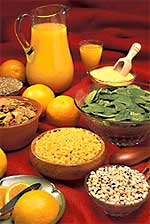 A study in northern India shows that milk fortified with specific micronutrients lowers the risk of diarrhea and acute lower respiratory illness in children.
A study in northern India shows that milk fortified with specific micronutrients lowers the risk of diarrhea and acute lower respiratory illness in children.
Here’s a list of what was added to the milk.
Continue reading Adding micronutrients to milk reduces diarrhea and respiratory illness in children
 Here, from California Medicine Man via Instapundit, is one of the most important advances in medicine. Continue reading Unintended consequences: treating iron deficiency leads to feminism
Here, from California Medicine Man via Instapundit, is one of the most important advances in medicine. Continue reading Unintended consequences: treating iron deficiency leads to feminism